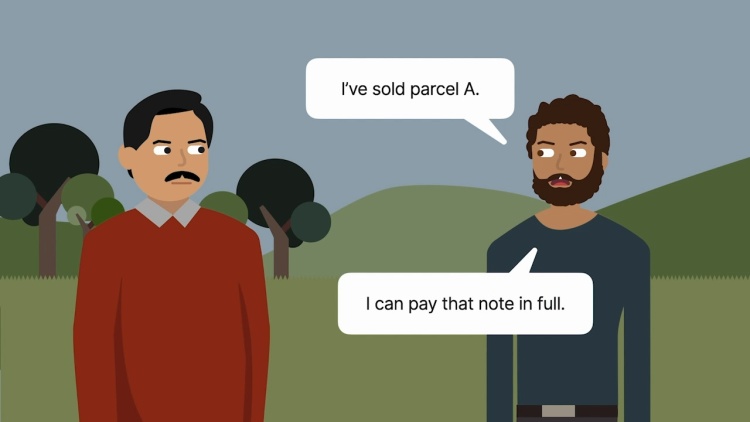Homami v. Iranzadi
California Court of Appeal, Sixth District
260 Cal.Rptr. 6, 211 Cal.App.3d 1104 (1989)
- Written by Megan Petersen, JD
Facts
Homami (plaintiff) and Iranzadi (defendant) are brothers-in-law. Homami gave Iranzadi a $250,000 loan to pay for a real estate transaction involving two properties. The loan was contained in two written promissory notes, each totaling $150,000. Each promissory note stated that no interest was to be paid. As Iranzadi did not speak English, Homami was granted a power of attorney for Iranzadi. For approximately one year, Homami wrote himself checks every month for $2,500 from Iranzadi’s account. Homami testified that these checks were based on an oral agreement between Homami and Iranzadi whereby Iranzadi would pay Homami twelve percent interest on the loan. Homami alleged that each $2,500 check only covered the interest due on his loan to Iranzadi. At the end of one year, approximately $40,000 had been debited from Iranzadi’s account, allegedly for the payment of interest to Homami. On March 18, 1985, Homami and Iranzadi signed another document entitled “Modification Agreement” for each of the promissory notes. The modification agreements stated that the promissory notes would bear no interest until June 22, 1985, but that after June 22, 1985, interest would be charged on the loan at a rate of eighteen percent per year. After signing this agreement, Iranzadi defaulted on his loan. Homami instituted foreclosure actions on the two properties he purchased for Iranzadi. Iranzadi claimed that he should be issued a $40,000 credit for money he previously paid to reduce the principal of the loan from Homami. After escrow closed on both properties, $43,500 was held out of the proceeds and delivered to Albert Ham, a stakeholder, pending resolution of the dispute between Homami and Iranzadi. Homami brought suit against Iranzadi in federal district court seeking to recover the $40,000 allegedly due by Iranzadi on the principal of the loan. Even though both promissory notes stated that no interest was to be due, Homami testified that he and Iranzadi had a separate oral agreement providing that Iranzadi would pay Homami interest at a rate of twelve percent. Homami testified that the reason “no interest” was printed on the promissory notes was to enable Homami to avoid paying state and federal income taxes on the interest income. The trial court held for Homami, and Iranzadi appealed. On appeal, Iranzadi argued that the alleged oral contract made between himself and Homami to pay interest on the loan was void for illegality.
Rule of Law
Issue
Holding and Reasoning (Brauer, J.)
What to do next…
Here's why 911,000 law students have relied on our case briefs:
- Written by law professors and practitioners, not other law students. 47,100 briefs, keyed to 997 casebooks. Top-notch customer support.
- The right amount of information, includes the facts, issues, rule of law, holding and reasoning, and any concurrences and dissents.
- Access in your classes, works on your mobile and tablet. Massive library of related video lessons and high quality multiple-choice questions.
- Easy to use, uniform format for every case brief. Written in plain English, not in legalese. Our briefs summarize and simplify; they don’t just repeat the court’s language.





